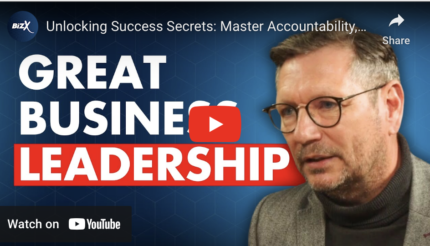Services can be difficult to sell, as they are often invisible, so when you are selling a service, you need to make it tangible and visible, at least to your prospective client.
Selling Time
If you are selling time it is easy to fall into the trap of feeling like you are selling yourself. But Slavery in the UK was outlawed many years ago and is not going to be a factor in 2021. You need to be clear ‘what’ you are selling.
If you are running a service-led business, you are unlikely to be selling just your time, you will be selling your skills, your expertise, and your training. You are solving a problem that the buyer cannot solve by themselves, even with more time.
Selling Your Service
The first step to selling with ease and confidence is to recognise what you are selling and why. Ask yourself what you actually do, and then ask why that is important, keep asking why until you get to the true worth of your offering.
What is it that the client wants? What do they think they are buying from you? Does that client clearly know what they want or need? Remember that you are the expert here, and it is up to you to guide your potential client. Your expertise starts at the buying stage, not after the sale has been made.
If you are an accountant, is your client buying an audit or a set of statutory accounts, or is he buying compliance, peace of mind, and certainty? How many of your clients value the audit process for itself or merely because it is a legal requirement?
If you are a brand specialist, is your client buying a lovely pretty picture they can use on letterheads, or do they want a whole new corporate identity that the whole team can get behind and embrace?
Once you know what your clients are buying and more importantly why they want that, it should be easy to create marketing that will inform potential buyers what your service does and what need it fulfills. This is what Andy Bounds calls the “AFTERS”. Become clear on what your client is left with once you have left them.
Marketing and Selling are two sides to the same coin. If you get your marketing right, you should be able to close the sale with ease.
Selling as the Expert
I mentioned earlier that you are the expert, your potential client is talking to you because they do not know how to do “x” and they need “x” or at least they think they do. It is your job to guide the buyer through the process of deciding whether they actually need “x” or “y” or a combination, and why they should or should not choose you to supply this.
You could start by asking what the prospective ideal outcome is, what do they want to achieve from “x”? Keep digging, as their first answer may not be the real answer. Try asking what would be next when they have achieved their outcome, how would they use “x” and what other benefits can they see from having an “x” in their life and business. Listen to your prospect and answer their needs, show how your service will solve their problems. If it won’t, then be honest, they will thank you and will likely refer you to others as someone that can be trusted.
Selling the Price
In the sales process, the elephant in the room is nearly always the price. The potential client wants to know what the price is, and you need to be able to explain your prices with confidence. Your confidence will give the client confidence. Any wavering or uncertainty, and you will communicate that to your prospect. Be sure of your value, shore yourself up with the knowledge of past successes and the great value you bring.
If you are in doubt, try this exercise:
1. List all the direct outcomes of working with you
2. List all the indirect outcomes of working with you
3. List all the costs if they do not work with you.
How much do you think the client would be willing to pay for all this? If you are having problems getting to a value, then go back to the Afters and dig a little deeper.
Remember that a higher price often signals quality. If you have impressed the prospect with your ability to meet their needs and you believe in your price, they will as well. Price is only going to be a deal-breaker if you have not explained your value well enough, or if you are trying to sell them the wrong product.
Do you often feel the need to offer a discount to close the sale? Please don’t! You will be devaluing your service, being unfair to all your current clients who signed up for your services at full price, and causing your profit to diminish. Selling a service at below break-even will be a recipe for disaster, causing you to go out of business before you have redeemed the referrals you are hoping will emerge. There are very few situations where discounts are a good policy in a service business. Try adding more value instead.
Closing the sale
Selling a service is often a journey; a process with multiple touchpoints where you can demonstrate professionalism and expertise. Make sure you have a system that brings your prospect willingly on that journey from suspicious prospect to excited client. You want clients who are looking forward to working with you. Think of it as, they are asking you to take them on, rather than begging them for the business. If you get the process right you will not need a hard close, your client will be thanking you for your expertise and your assistance, and for taking the time to listen to them.
Remember in all this, you are the expert, and you can solve your client’s problem and that is all the client wants.
If you would like to discuss any of the above concerning selling your business services, I am happy to have a chat over a virtual coffee. You can email me at angelaturton@actioncoach.com





